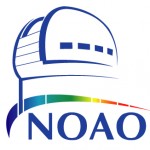Podcaster: Rob Sparks and Dr. Aaron Meisner
Title: Backyard Worlds
Organization: NOAO
Links: www.noao.edu ; @NOAONorth; http://www.gemini.edu/; https://www.facebook.com/GeminiObservatory; https://www.nasa.gov/connect/social/index.html; @halfastro; https://twitter.com/NASASocial/lists/spacex-crs-16-nasasocial; https://www.flickr.com/photos/halfastro/
Backyard Worlds project homepage: http://backyardworlds.org
Backyard Worlds blog: https://blog.backyardworlds.org/
Blog post authored by Backyard Worlds citizen scientist discoverer: https://blog.backyardworlds.org/2019/02/19/the-crystal-ball-white-dwarf/
NOAO press release about Backyard Worlds discovery/relaunch: https://www.noao.edu/news/2019/pr1904.php
Dusty white dwarf Backyard Worlds discovery paper: https://arxiv.org/abs/1902.07073
Backyard Worlds Twitter account: https://twitter.com/backyardworlds
Description: The WISE (Wide-Field Infrared Survey Explorer) is a very successful NASA mission. In this podcast. Dr. Aaron Meisner discusses Backyard Worlds, a citizen science project that looks for brown dwarfs and other low mass stars in WISE data.
Bio: Rob Sparks is a Science Education Specialist at the National Optical Astronomy Observatory. A lifelong astronomy enthusiast, he earned a B.A. in physics at Grinnell College and his M.S. at Michigan State University. He taught high school physics, math and astronomy for 11 years at schools on St. Croix, Florida and Wisconsin. He spent the 2001-2002 school year working on the Sloan Digital Sky Survey as a recipient of the Fermilab Teacher Fellowship. He spent the summer of 2003 at the National Radio Astronomy Observatory as part of the Research Experience for Teachers. He has been working as a NASA Astrophysics Ambassador since 2002. He was a member of the Galileoscope Working Group for the International Year of Astronomy.
Dr. Aaron Meisner is a NASA Hubble Fellow at the National Optical Astronomy Observatory and a co-founder of the Backyard Worlds: Planet 9 citizen science project. He specializes in processing large astronomical data sets, and is also deeply involved in the Dark Energy Spectroscopic Instrument (DESI) project at Kitt Peak National Observatory
End of podcast:
365 Days of Astronomy
=====================
The 365 Days of Astronomy Podcast is produced by Planetary Science Institute. Audio post-production by Richard Drumm. Bandwidth donated by libsyn.com and wizzard media. You may reproduce and distribute this audio for non-commercial purposes. Please consider supporting the podcast with a few dollars (or Euros!). Visit us on the web at 365DaysOfAstronomy.org or email us at info@365DaysOfAstronomy.org. This year we will celebrates the Year of Everyday Astronomers as we embrace Amateur Astronomer contributions and the importance of citizen science. Join us and share your story. Until tomorrow! Goodbye!


